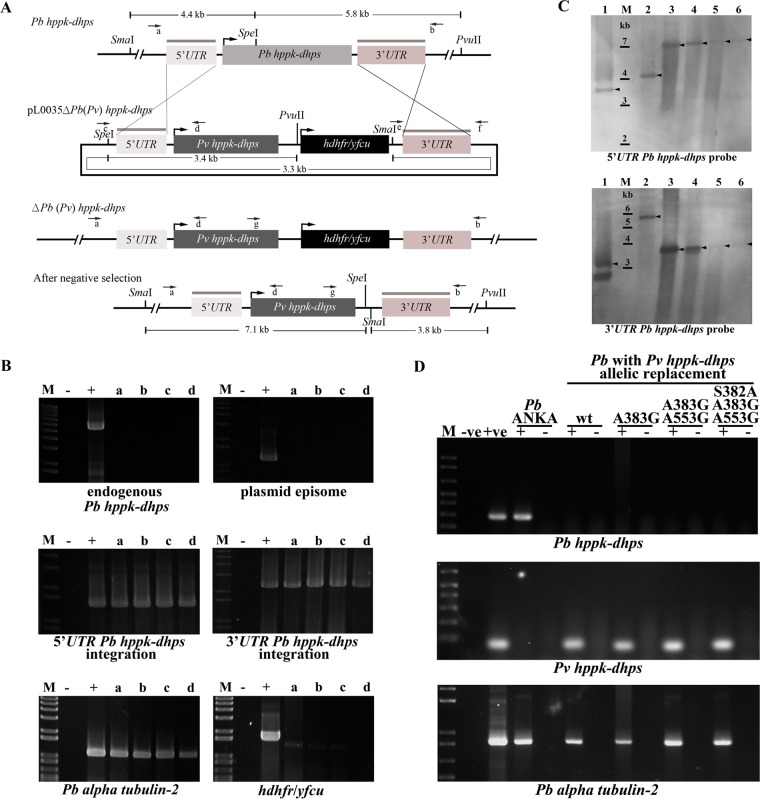FIG 3.
Molecular characterization of a transgenic P. berghei (Pb) parasite harboring Pvhppk-dhps. (A) Schematic diagram depicting the genomic organization before and after integration of Pvhppk-dhps at the Pbhppk-dhps locus. Arrows indicate the primers used for the molecular characterization of transgenic parasites (primers c and d or primers e and f for the episomal status of the transfected plasmid; primers a and b for the presence of endogenous Pbhppk-dhps; primers a and d and primers g and b for the 5′ UTR and the 3′ UTR of Pvhppk-dhps integration, respectively). Enzyme restriction sites along with fragment sizes for Southern blot hybridization are indicated. (B) PCR results for molecular characterization of transgenic P. berghei with Pvhppk-dhps. Lanes: M, 1-kb plus DNA marker (Invitrogen); −, sample with no template; +, positive control; a to d, transgenic P. berghei in which the hppk-dhps allele was replaced by wild-type Pvhppk-dhps and Pvhppk-dhps with the A383G, A383G A553G, and S382A A383G A553G mutations, respectively. The P. berghei alpha tubulin-2 gene was used for DNA quality control. (C) Southern blot hybridization of Pvhppk-dhps allelic replacement at the Pbhppk-dhps locus. A Southern blot was hybridized with the 3′ or 5′ UTR Pbhppk-dhps probe to confirm Pvhppk-dhps allelic replacement at the Pbhppk-dhps locus. The 3′ or 5′ UTR Pbhppk-dhps probe binding sites are indicated by gray lines in panel A. DNA was digested with PvuII and SpeI. Lanes: M, 1-kb plus ladder (Invitrogen); 1, transfection plasmid; 2, gDNA of P. berghei; 3 to 6, gDNA of transgenic P. berghei parasites in which the hppk-dhps allele was replaced by wild-type Pvhppk-dhps and Pvhppk-dhps with the A383G, A383G A553G, and S382A A383G A553G mutations, respectively. Arrowheads, hybridized bands. (D) RT-PCR for detection of Pbhppk-dhps, Pvhppk-dhps, and P. berghei alpha tubulin-2 transcripts. Lanes: M, 1-kb plus ladder; −ve, negative control (water); +ve, positive control; +, product of PCR with the indicated cDNA; −, product of control PCR without reverse transcriptase. wt, wild type.

